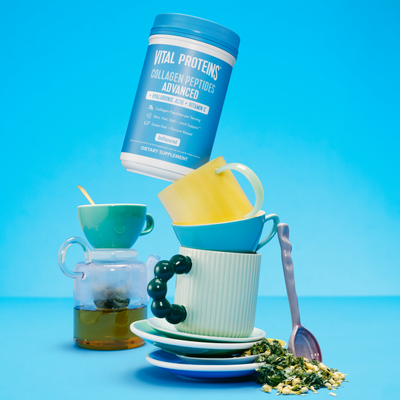By: Kristin Bugden
Kristin Bugden is a New Jersey-based mom and communications consultant. She loves to write, take barre classes and believes in a good reality television binge-watching session. Here, she shares the importance of being kind.
It has been on my mind for some time that the world needs kindness now more than ever, so when I happened to come across a book titled The Kindness Cure by psychologist Tara Cousineau while doing a little internet browsing, I thought I’d check it out. Below are some of my favorite takeaways in terms of how we can all work to be a little kinder and try to make the world a more friendly place.
The Need for Kindness
The author sets the stage for the need for more kindness during a time when things feel incredibly divisive across the United States and as though empathy, respect and common decency have become dwindling resources. It has even reached the point where we might be skeptical of someone’s kindness and think the person must be up to something instead of just accepting them as genuinely trying to be nice. That being said, she argues we’re wired to care from the get-go and that compassion and kindness are deeply embedded in the human blueprint. However, how kindness – or “love in action” – flourishes is largely up to us.
RELATED: 4 Lifestyle Changes That Help Me Manage My Mental Health
The Stress Factor
Life carries with it many different stress factors, and while some stress isn’t necessarily a bad thing, prolonged stress leads to wear and tear on the body. It can also make it harder to exhibit acts of kindness or compassion. I know I’ve been there – when you feel overworked and burnt out, it’s easy to be negative and snap at people. Basically, you’re so swept up in trying to cope with the day to day that you simply just don’t care much about anything else. As you can imagine, this negative mentality could have a domino effect and erode kindness overtime.
Cousineau argues it is possible to “reset” your stress without a complete life overhaul and it starts with identifying the effects of stress and relaxation on your body. For example, think about the sensations you feel when doing something stressful like giving a presentation or going on a first date. You might experience things like a racing heart, dilated pupils, numbness, etc. Basically, your body is working to get back into a balanced state of being. Cousineau says we can learn to balance out these typical stress responses by intentionally engaging our internal calm and connect system. For myself, these might include activities like exercise, reading, and spending time with family. When your bodily states are in rhythm, you can become more available to tend and care for others. This is a valuable takeaway because while it’s important to be kind to others, we must remember to be kind to ourselves and that’s really where it all starts. Make it a point to relax, cook, meditate, spend time in nature, or do whatever it is that makes you calm and happy.
RELATED: Why Saying 'No' Benefits Your Mental Health

Learning to Listen
This particular chapter about radical acceptance spoke to me because I feel as though constantly passing judgement on others is a big societal problem. Cousineau says that acceptance of others begins with the understanding that comes through listening. This made me think about today’s hyperconnected digital world and that taking the time to really listen to others is undoubtedly lacking. We might think we’re listening, but it’s not often that we’re reallydoing so with true empathy. It’s a skill that actually takes a bit of practice to cultivate and one of the best ways to do so is to try and step away from our automatic habits and beliefs that are rooted in judgement. Acknowledging the true root of our feelings about something or someone will help us to speak from the heart and relate to others with kindness.
Accepting a Helping Hand
There’s no doubt that our culture values individualism to a point where we might fear being perceived as “weak” by asking for help. Cousineau states that an offer of help is a gesture of compassion and the acceptance of such help is a courageous act of self-kindness. Sometimes even the simplest of “asks,” like asking for help carrying the groceries can be hard to do. I know that I almost always turn down help like this because I don’t want to seem like I can’t do it on my own or that I’m making someone else go out of their way. I think the author makes an interesting point that sometimes the humblest thing to do is to accept help when it’s offered because we can expand social connection and support when we’re willing to be honest about our needs. Basically, the giving and receiving nature of kindness creates a “give, receive, appreciate” loop, so maybe try reaching out to someone in your circle who needs help, ask someone for help if you need it, or simply share your gratitude.
Networks of Generosity
I’m sure you’ve heard the term “pay it forward,” which is essentially responding to an act of kindness you might have received by being kind to someone else. Acts of kindness, generosity, and cooperation can spread with only a few people. However, the opposite can also happen where networks can spread harmful ideologies or behaviors. Obviously, we want to stay away from the latter. As the author notes, the pay it forward concept is inspiring to think about when you realize that an act of kindness or generosity can reverberate in ways you might never see.
I’ll leave you with some incredibly simple kindness examples Cousineau outlines which include smiling at others, sending a thank-you note, opening the door for someone, volunteering at a soup kitchen, getting to know someone who is not like you and signing a social petition. I’m going to truly make an effort to be kinder and encourage you all to do the same. After all, you have nothing to lose but making yourself and others a little happier.















